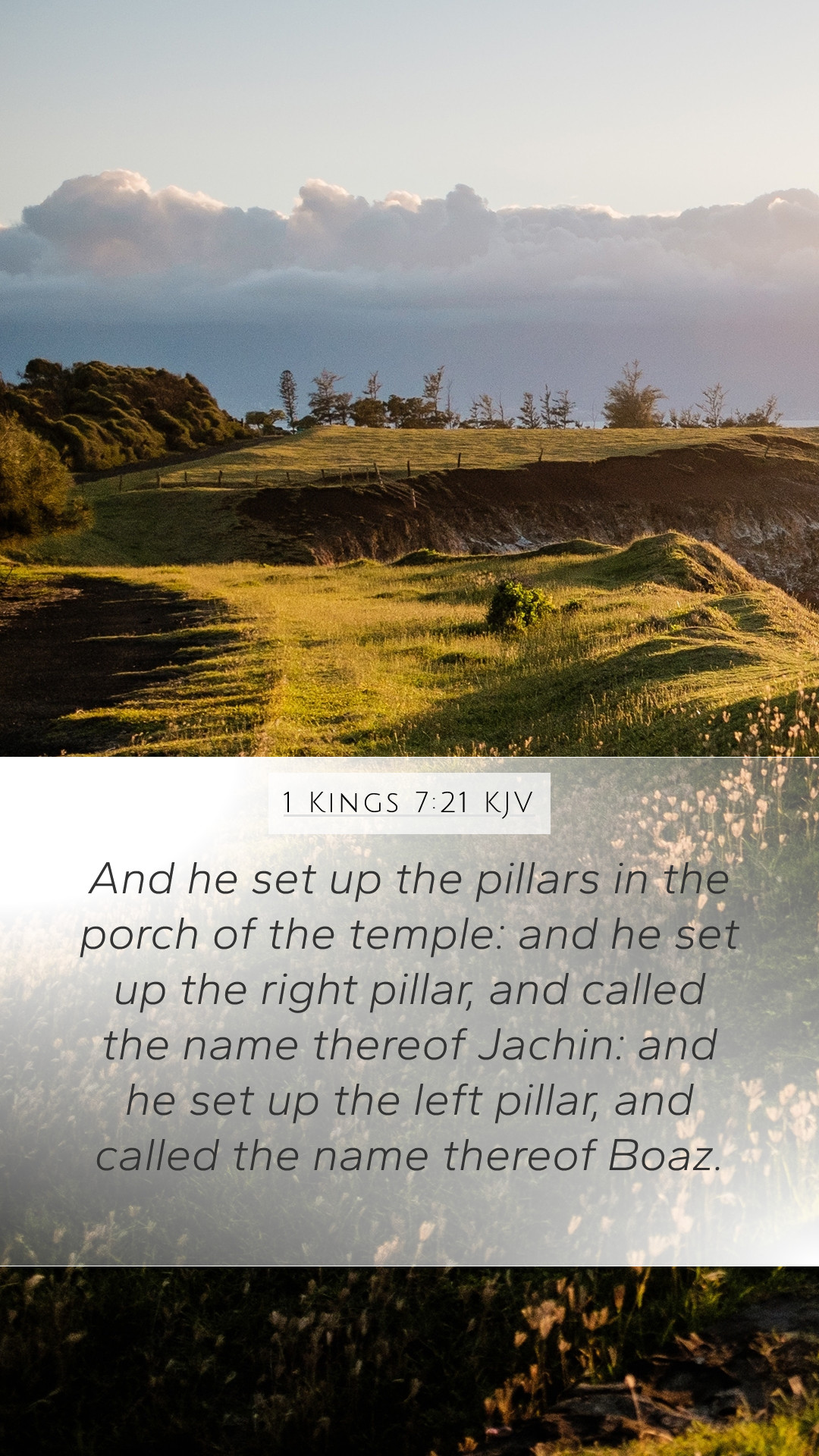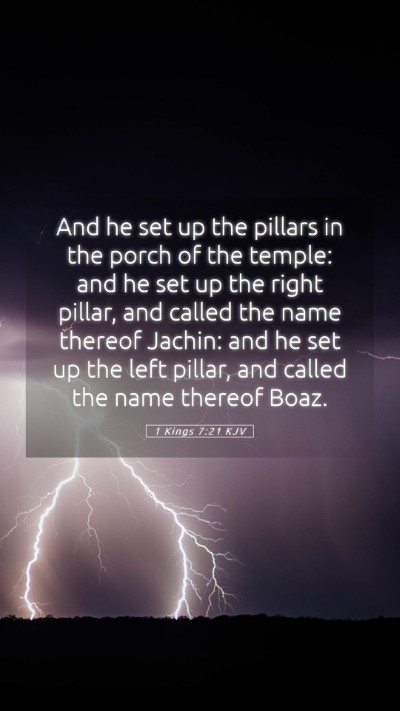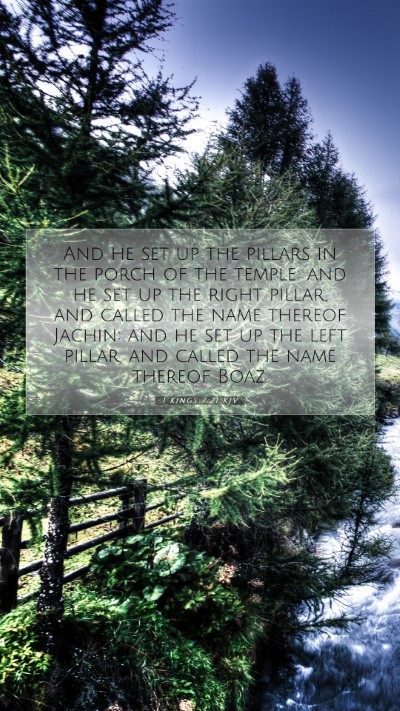Understanding 1 Kings 7:21
This passage describes a significant component of King Solomon's temple: the two pillars named Jachin and Boaz. To fully grasp the meaning of this verse, we turn to the insightful commentaries of notable theologians such as Matthew Henry, Albert Barnes, and Adam Clarke.
Bible Verse Meaning
The verse reads:
"And he set up the pillars in the porch of the temple: and he set up the right pillar, and called the name thereof Jachin: and he set up the left pillar, and called the name thereof Boaz."
Context and Significance
According to Matthew Henry, these pillars symbolize strength and stability. The names chosen for the pillars have great meaning: Jachin translates to "He will establish," symbolizing God's promise to Israel, while Boaz means "In Him is strength," reflecting reliance on God's power.
Albert Barnes expands on this, noting that the placement of Jachin and Boaz at the temple's entrance signifies the importance of recognizing God's sovereignty as one enters into a sacred space. It serves as a reminder that the foundation of worship is built on trust in God’s establishment and strength.
Adam Clarke adds that these pillars were massive structures, representing the spiritual and physical support God provides to His believers. Their grandeur in design suggests the significant role that the temple plays in Israel's worship and relationship with God.
Spiritual Symbolism
- Divine Establishment: The pillar Jachin reminds worshippers that God establishes His covenant.
- Strength in God: Boaz emphasizes that true strength is found in God alone, which is crucial for believers in challenging times.
- Entrance to Worship: The positioning of the pillars signifies the entry point into God’s presence, denoting reverence and the need for divine help.
Bible Study Insights
For those engaged in Bible study groups or seeking resources for online Bible study, the insights derived from this verse can facilitate understanding in various study settings:
- Discussion Topic: The significance of symbols in worship practices.
- Application: Exploring how reliance on God shapes our daily lives and decisions.
- Historical Context: Understanding ancient Israelite culture and its practices in the construction of the temple.
Meaning of Bible Verses
Engaging with scripture through Biblical exegesis, especially in passages like this, provides enriching depths to our understanding:
- Layered Interpretation: Recognizing the names of the pillars can lead to deeper theological discussions regarding God’s promises and character.
- Faith Application: How can believers today establish their faith and find strength amidst life's challenges similar to Israel's reliance on God?
Cross References
This verse relates to other biblical texts that echo similar themes:
- 2 Chronicles 3:15-17 - Details the construction of Solomon's temple.
- Jeremiah 1:10 - Speaks to God establishing His word and kingdom.
- Philippians 4:13 - Emphasizes strength through Christ.
Conclusion
1 Kings 7:21 serves as an essential verse for exploring the themes of establishment and strength in God through its symbolic pillars. By understanding its context, significance, and application, one can enhance their Bible verse interpretations and deepen their Bible study insights.


